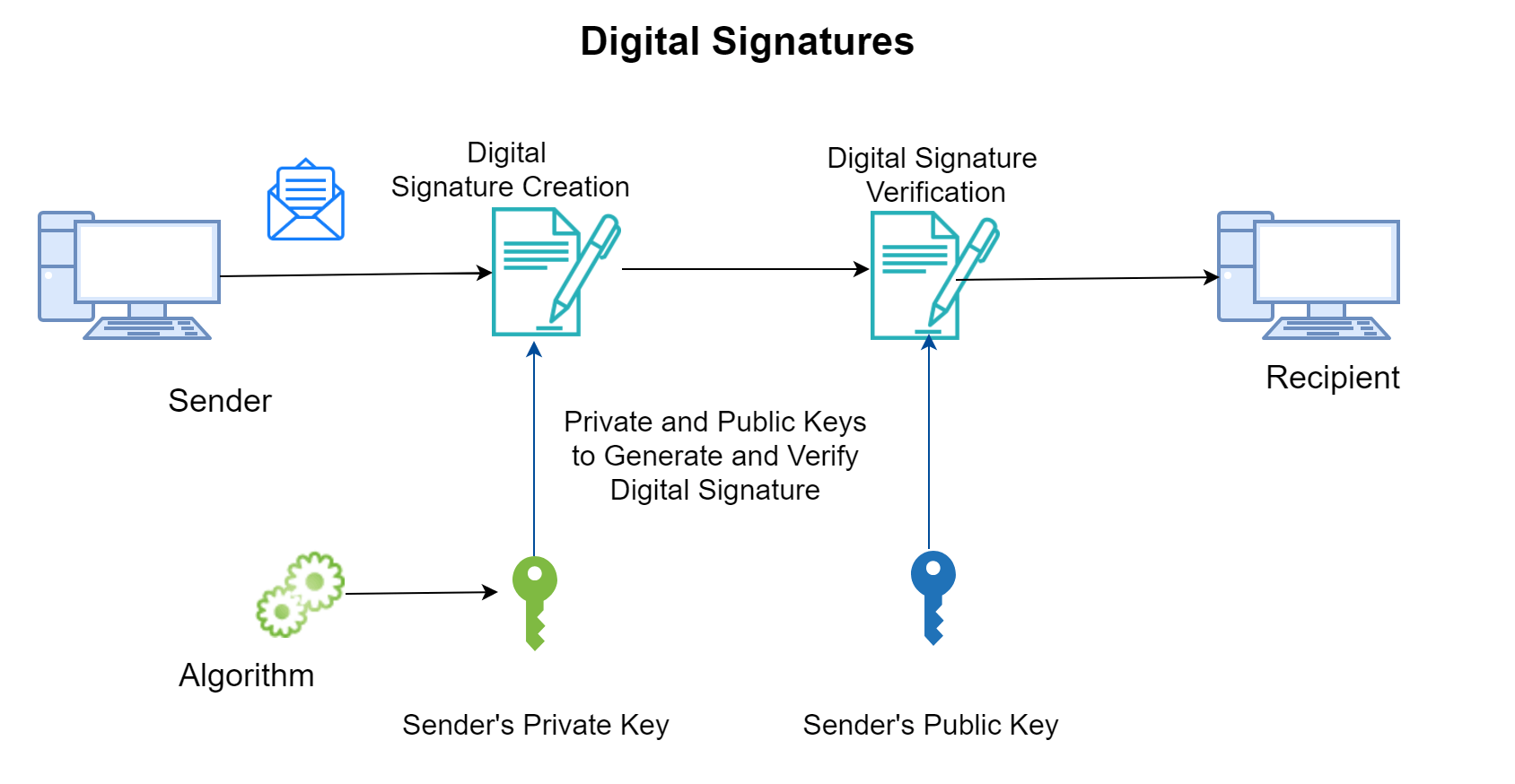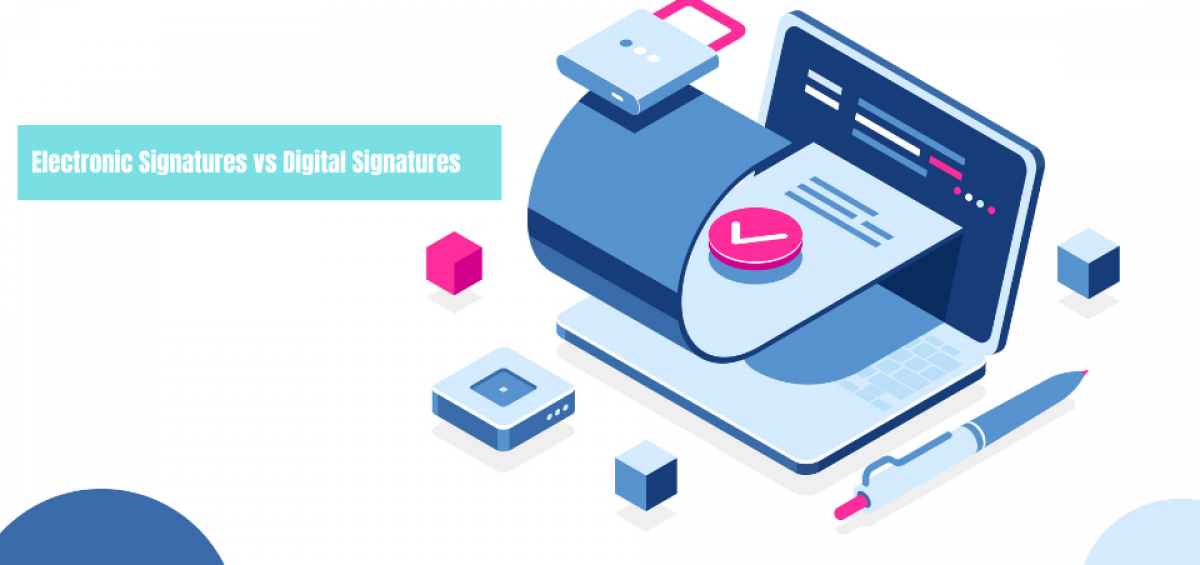 Many people think that electronic signatures are the same as digital signatures but that is not the case. In fact, digital signatures are a highly secured way to implement electronic signatures.
Many people think that electronic signatures are the same as digital signatures but that is not the case. In fact, digital signatures are a highly secured way to implement electronic signatures.
Digital signatures use a public and private key generation framework, signature algorithm and a verification algorithm to match public and private keys and validate the authenticity of electronic signatures.
Ever since the passing of the E-Sign Act in 2000, electronic signatures have acquired as much weight as the traditional wet or ink signature. As a result, electronic signatures have become widely used to conduct business online. This term is quite broad however, and not all electronic signatures constitute as digital signatures, which are guaranteed to fulfill the requirements decreed by the E-Sign Act. These terms include:
– The customer’s intent to sign, as well as the consent to sign electronically
– The software’s ability to maintain document integrity through unique identifiers
– The company’s responsibility to retain all documents for legal purposes
What does it mean? In a nutshell, every document requiring a digital signature has, in effect, a unique key attached to it. This is done using a public key infrastructure (PKI). Public key is generated & attested by the operator of the PKI called a Certificate Authority, and is held by the document owner, who can then pass on copies to his or her clients. Once the client signs, a unique key (private key) message becomes embedded inside the document. If anyone tries to tamper with the document, the software algorithm will detect it and invalidate the document.
Due to increased identity theft in recent years, it has become ever more important for documents to be signed under a watchful eye, whether that be through digital or in-person witnesses. Companies that value your security will enact several layers of protection to ensure that every document is using digital signatures and is legally secure. At Foxit eSign, we use industry-standard encryption, time stamps, in-document visibility control, and e-mail authentication to discourage electronic forgery. Foxit eSign complies with the E-Sign Act, as well as UETA, HIPAA, and more.
Should you have any more questions regarding the nature of digital signatures, just contact us via phone or e-mail.
2










